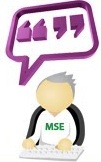 Every computer connected to the internet is vulnerable to fraud and infiltration. This leaves our pockets prey to the software protection industry's heavy charges to keep us safe.
Every computer connected to the internet is vulnerable to fraud and infiltration. This leaves our pockets prey to the software protection industry's heavy charges to keep us safe.
Yet it's possible to get legal, professional quality anti-virus and other protective software, absolutely free.
Always be careful to check any software you put on your computer is suitable and compatible with your existing set-up. No liability can be accepted for any individual problems caused by acting upon the information given.
 The Five Basic Ways to protect yourself
The Five Basic Ways to protect yourself
Getting software to protect your computer is unfortunately a must these days. Yet before that point, there are a number of simple things to do:
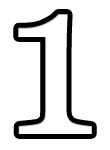
Keep your software up to date.
These days most computers come with a decent level of protection off the shelf, yet since threats change daily, it's imperative you keep it up to date or else it's useless. Windows users can grab updates from Microsoft's dedicated website, but it's easier to set your computer to download them automatically.
To do that just click on 'Start', go to Control Panel and click the 'System' icon, then go to the Automatic Updates section where you can toggle the latter on or off. The same goes for dedicated anti-virus software (see the top free protection below); keep it up to date, and do a full system scan once a week.
Users of Apple Macs (and Linux) have slightly less to worry about in terms of viruses, as there still aren't so many floating about for them. Nonetheless, Mac users are still recommended to grab anti-virus software too.

Protect your online identity.
With more and more of us using the web to bank online and do other sensitive things, coming up with solid passwords is more important than ever.
It may seem obvious, but don't use the same log-in for lots of sites, because then if one falls into the wrong hands, your whole online life is up for grabs. It's a nightmare to remember lots of different ones, so a good idea's to take one and just add a few letters to it related specifically to each site you're logging into. Also, ensure you frequently change your passwords.
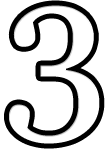
Switch it off!
Switching your computer off when you aren't using it doesn't just save energy, it stops others accessing it while you're away. At the very least you should disconnect your broadband when you don't need the web.
While your PC's on and after you've been browsing is a prime time for malware attacks, so this is a good preventative measure.
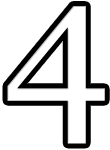
Don't open unknown email attachments.
The majority of web crime still happens via email, so be on guard when checking yours. Don't open any attachments you're not expecting, or click any random links you find in the text (see the Phishing Scams article).
If you're unsure of a site's veracity, whack the link into Google and see what comes up; it may be listed as a bad 'un.
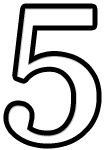
Only download software from trusted websites.
If you're looking for a piece of software, find out which company makes it first and then go to its site to get it.
For smaller free/shareware programs, try using big sites like cnet's Download.com rather than just getting them from anywhere that shows up. If you're using torrents, avoid .exe files wherever possible, and if you must tempt fate, make sure they're thoroughly scanned first.
The banks say 'if you don’t have it, you could be liable'
If you’re not protected and someone uses your computer to get passwords or access your bank account or other financial products, you may find it harder to get a refund.
While the burden of proof's on the bank to demonstrate you didn’t act with care, it's best to be safe. For more on what to do if you think you've been defrauded read the ID Fraud Protection guide.
Get anti-virus protection free from your bank/card issuer.
Since online banking has taken off in such a big way, a few banks now offer free anti-virus protection to cover themselves. So depending which you do your online banking with, you could get some quality software for nowt (PC only):
-
MBNA - McAfee. All MBNA cardholders can get a year's free access to McAfee's Online Banking Suite, which includes its well-rated pro anti-virus, virus and spyware programs, as well as a raft of others. It's worth £60, although if you want it after the complimentary year's up, you'll pay £30 for the next year's access.
-
Barclays - Kaspersky Internet Security. Worth £51, online banking customers can grab a free 12-month subscription by clicking the 'Kaspersky Offer' link on their 'At a Glance' pages. It comes very highly rated by various tech publications, so it's a must-have if you bank with Barclays.
-
Santander, RBS, NatWest - Rapport. Rather than a fully-fledged anti-virus program, Rapport is a service, consisting of part browser plugin and part online analysis.
The idea's that when you go to a bank Rapport will spring into action to encypt data and restrict access from others. However, as Rapport is free you'll need to back it up with further software. Furthermore, it's incredibly processor hungry for such a supposedly lightweight program, so consider this if your PC's on the slow side.
 Know thy enemy: The main threats
Know thy enemy: The main threats
Threats to your computer come in different guises with various funky names. Collectively they're considered malicious software, abbreviated to 'malware' in security parlance. The main types are:

Viruses. Hidden programmes that wreak havoc.
These are transmitted via websites, e-mail attachments, directly over the internet, or via any other removable media. They hide in applications or files and spread from computer to computer, generally wreaking havoc wherever they get the chance to.

Trojans. Bugs within harmless looking files.
Trojan (horses) are hidden within a file that looks harmless, like a picture of a celebrity, aiming to trick the user into installing the malicious software, like spyware or adware on the computer.

Worms. Can drill in via open web connections.
Worms take advantage of any open Internet connection, to try and sneak in and replicate on the computer. Once loaded, they often start to send spam email from your computer without your knowledge.
It's often about big, organised crime.
It's a common misconception that producing computer viruses is the domain of angst-ridden web kids with little to do, showing off to their equally reclusive peers. While there may have been some truth in this at the beginning, and of course it still happens, these days it's often about big criminal business. Some of the reasons it happens include...
Stealing your information.
Cracking into your computer can reveal a breadth of information about you, possibly including bank details for ID fraud or just directly taking your cash.
Grabbing your e-mail contacts.
It may be a programme looking to grab all the e-mails in your address book/contacts list in order to find real addresses to sell to spammers. These people may well then be e-mailed from your address.
-
Using your computer to threaten websites.
Some viruses allow your computer to be controlled in order to create a DDOS attack. This is where a website (or even a country's whole domain e.g. Estonia's .ee domain) is closed down due to simulated use by billions of users at the same time. This can be for political reasons, ransom, to close down competitor sites or just for 'fun'.
Many of the people whose computers cause this are unaware it's happening, as viruses are controlling their web connections. This site was hit by just such a DDOS attack, the irony being some of the people who were denied access for three days could've been contributing to the closure themselves with hidden viruses on their system.
 Free anti-virus software
Free anti-virus software
Pay for anti-virus software from biggies like Symantec/Norton or Kaspersky and it'll cost roughly £50 per year. Yet you can get free software, which while not quite as effective as these paid-for programmes, can still keep on top of threats. Regardless of which route you take, bear in mind the following:
Hackers develop new bugs constantly. All these free anti-virus services offer regular updates, so make sure you get them!
Yet it's not just about how up to date your software. If you're not using it, what's the point? Try to fit in a full 'on-demand' scan (that is, one where the virus scanner flicks through all the files on your hard drive) once a week. This should make sure nothing slips through the net.
Antivirus: Free PC software downloads
|
|
Alwil's Avast! is now in version 6, which boasts an improved interface and better detection. So much so in fact it's leapfrogged Avira's AntiVir in our rankings. It's also available for Mac. |
|
|
Antivirus: Free Mac downloads
|
|
Firewall software - do you need it?
Anti-virus isn't the only protection your computer needs. If you don't have a Firewall, you're leaving all your files and sensitive information vulnerable. Effectively:
If anti-virus software's the border patrol checking what's allowed in, a firewall's the fence stopping it getting there in the first place.
So why aren't we all going firewall mad? That's because these days we tend to connect to the web via a router, rather than just a modem, and routers provide a hardware firewall. Ensure yours is switched on and set to a high enough level of security. Consult the manual or search online for the make and model number if you don't know how to check.
While you're there, check your router password has been changed from its default; you'd be surprised at how many connections are hacked simply because the password hasn't been changed. Spend a little time to get your settings right here, as router firewalls give a higher level of protection than software ones.
If you don't connect via a router, or you're just big on your online security, here are the top freebies:
Firewalls: Free PC software downloads
|
|
|
|
Firewalls: Free Mac downloads
|
 Adware and Spyware
Adware and Spyware
There are two more commercial types of software you can find on your computer. Often legitimate developers will design programmes which incorporate useful functions, but unbeknownst to you either provide them with information about you or try to sell you things. They fall into two main categories:

Adware. Software that tries to sell you things.
Adware is software that sneaks onto your machine and opens up pop-up windows that sell you things, often but not exclusively gambling sites.
It's easy to think of these as being related to the site you were visiting, yet often it's because a programme's snuck itself onto your computer. If you've closed your browser but pop-up windows still appear on your desktop, chances are you've been infected.

Spyware. It tracks what you do.
Spyware is a more dangerous, less noticeable type of software which covertly grabs information from your PC and sends it back to its leader out in the cyber-ether.
Owing undoubtedly to their potential for criminal moneymaking, malicious spyware programmes have become much more advanced in recent years, to the extent that some of the top spyware removers of yesterday can no longer cope.
Basic anti-adware/spyware measures:
To put your mind at rest you'll need to download some extra software, but in the meantime there are a couple of basic things to do:
Use a pop-up blocker.
If you think you're being troubled by adware, use a pop-up blocker to alleviate the symptoms while you find a solution. Do be aware though, not all pop-ups are bad; some sites open new windows in this way - if you want to see them, hold down CTRL while clicking the link.
Some spyware can be legitimate...
There are a couple of legit spyware programs too; Google's desktop (if you allow it to) can send info on what you've been searching back to Google, and Alexa's toolbar can do the same. In both cases the aim is to monitor your computer to help develop their own product and data about people's searching habits.
Whether you allow this depends on your view on how you want the information to be used. It's mostly harmless but does mean someone, somewhere has access to your searching habits.
Be careful when downloading.
The usual way for ad/spyware programmes to get on your computer is by attaching themselves to other things you download. So make sure you check the veracity of download sources before getting files.
Delete programmes you don't use.
Use the add/delete function on your Control Panel to get rid of any programmes you don't need anymore; they may be corrupted.
Like most antivirus tools, spyware removers work by comparing what's on your machine to a list of known offenders. As ever, the top anti-ad/spyware programmes are commercial, but that doesn't necessarily mean you need to buy them. Try these first:
Ad/Spyware removal: Free PC downloads
|
|
|
Spybot's been going for a while, and while it has a pretty long list of features, it's always received mixed feedback. It's fairly processor-hungry, so if your computer's already quite slow it'll be an unwelcome addition. |
Ad/Spyware removal: Free Mac downloads
|
|
 Dodging Spam emails
Dodging Spam emails
Want dodgy viagra or a fake watch? Want to invest in non-existent shares or visit fraudulent pornography sites? Or do you just want to click on a fake email from your bank to have your password stolen (read the full Phishing Scam guide)? You may think it unlikely anyone would say yes, but if that were true, criminals wouldn't bother sending out the e-mails.
For most of us, spam is time-consuming to wade through and potentially dangerous. Sadly, while you can register to stop junk mail or phone calls (see Junk the Junk guide) the same isn't true with spam e-mail. Still, here are some do's & don'ts to keep the spammers at bay.
Spam do's & don'ts
 DO: Use your email provider's filtering toolsMost big e-mail clients such as Google, Hotmail and Yahoo have their own filtering system to stop spam. Check your settings and make sure the filter is switched on. 
DO: Set up email rules if possibleIf you download your e-mails to a computer eg using Microsoft's Outlook - you can create rules to stop common spam by entering key words, e.g. VIAGRA, so those e-mails are automatically filtered. The only problem with this is spammers try to beat it through mis-spelling words or using numbers in place of letters (i.e. V14GRA), so you'll have to block out other combinations too. |
 DON'T: Write your email address onlineOnly give out your e-mail address to people you know, don't post it on public forums (including this site's) or chat rooms. Spammers often use software robots, or 'bots', to read all forums, store any e-mails and spam them. |
 DO: Know what you're signing up forWhen signing up for free offers or sites, be careful what you agree to. All sites should have a privacy policy which declares what they will do with the info they collect. If they don't have one, steer clear! 
DO: Set up a spare email accountHaving a second e-mail address can be handy for special offers, newsletters or freebies if you don't want to clog up your proper e-mail address. Google's Gmail is especially useful for this, as at a later date if you change your mind and want those e-mails direct it can auto-forward them. |
 DON'T: Block emails you want!Blocking spam's by no means an exact science, and thus important e-mails may also be blocked. For example, the term ‘mortgage' is commonly filtered out as spam, so you could miss an important note from your broker. The way around this is to make sure you've added senders whose emails you'd like to receive to your 'accepted list'. The same goes for this site's weekly MoneySaving email; its combination of freebies, money, mortgage & debt info means it can easily get caught in spam filters. For those that don't get it, you can add yourself to the distribution list at moneysavingexpert.com/tips. |
 Free Back-Up Software
Free Back-Up Software
We've all had moments of horror (even in this very office) where due to hardware failure, power cuts or just plain ol' silly mistakes, precious documents disappear. As more and more of our lives are committed to the digital domain, backing up data is becoming more and more important, and since there are ways to do it free, you'll only have yourself to blame if you don't.
A good way to think about it is, if your PC broke, what files would you miss most? Those are the ones you should be backing up as a minimum.
|
|
Software of the last resort: Recovery programmes
If you've already lost valuable files, there may still be some hope in the form of recovery programmes. Freeware programmes Restoration, Freeundelete and PCinspector work to recover lost files, but as you may expect, it's a bit of a lottery as to whether they actually succeed.
All new top free programs will be included in the free weekly e-mail
Discuss this article/add suggestions in the forum
Protect Your PC For Free
Spotted out of date info/broken links?
Email brokenlink@moneysavingexpert.com to let us know
Always double check the product details before signing up to them

LINKS THAT HELP THIS SITE (all have a * in above article)
(this has no impact on product or pick - see explanation below)
N/a
Explanation (of * links)
How this site is funded. Two types of contacts are listed. The first, which all have a * within the main body of the articles, help MoneySavingExpert.com stay free to use, as they're 'affiliated links' which invisibly take you usually via affiliate linkage or commercial money sites, which then pay this site. It's worth noting this means the third party used may be named on any credit agreements. The second type doesn't help and therefore doesn't have a *.You shouldn't notice any difference, the links don't impact the product at all and the editorial line (the things we write) is NEVER impacted by the revenue - we aim to look at all available products. If it isn't possible to get an affiliate link for the best product, it is still included in exactly the same way. For more details read how this site is financed.
LINKS THAT DON'T HELP THIS SITE
(please only use if necessary)
No * Link Available: A-squared , Adrive , Alvira AntiVir , AOL X-drive , Avast! 4 , AVG Free , Banking Code , Cnet Download , Comodo Personal Firewall , Diino , Freeundelete , Google Pack , Housecall 6.6 , Mailwasher , Microsoft Update , Norton Remover , Online Armour , Panda Activescan , PCinspector , Restoration , Spamihilator , Sunbelt Personal Firewall , Windows Defender , Windows Live Skydrive , ZoneAlarm
Duplicate links of the * links above for the sake of transparency, but this version doesn't help MoneySavingExpert.com:
N/a

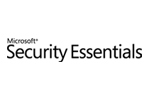 Microsoft Security Essentials.
Microsoft Security Essentials.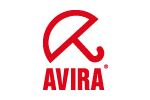 Avira Antivir.
Avira Antivir.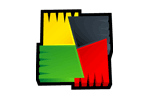 AVG Free.
AVG Free.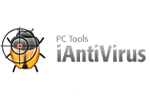 PC Tools iAnti-Virus.
PC Tools iAnti-Virus.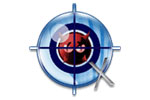 ClamXAV Anti-Virus for Mac.
ClamXAV Anti-Virus for Mac.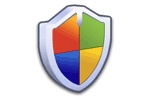 Built-in: Windows Firewall
Built-in: Windows Firewall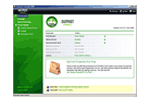 Outpost Firewall Free edition
Outpost Firewall Free edition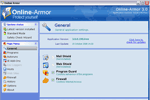 Online Armour Personal Firewall
Online Armour Personal Firewall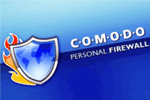 Comodo Personal Firewall
Comodo Personal Firewall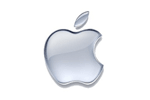 Built-in: Mac Firewall
Built-in: Mac Firewall Malwarebytes' Anti-Malware Free Edition.
Malwarebytes' Anti-Malware Free Edition. Ad Aware 9 Free Edition.
Ad Aware 9 Free Edition. 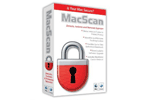 MacScan 2.8.
MacScan 2.8.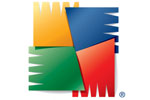 AVG LinkScanner Mac edition.
AVG LinkScanner Mac edition.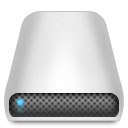 Use Hardware.
Use Hardware. 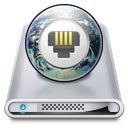 Use Online Storage.
Use Online Storage. 






















